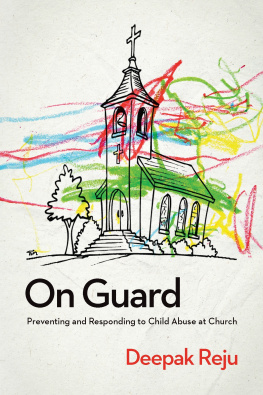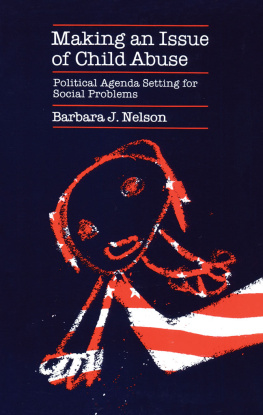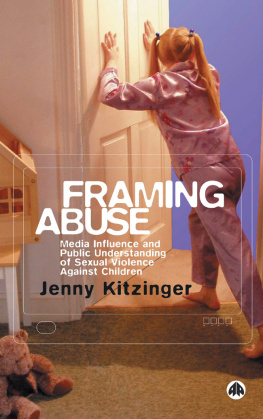First published in Great Britain in 2015 by
Policy Press University of Bristol 1-9 Old Park Hill Bristol BS2 8BB UK Tel +44 (0)117 954 5940 e-mail
North American office: Policy Press c/o The University of Chicago Press 1427 East 60th Street Chicago, IL 60637, USA t: +1 773 702 7700 f: +1 773-702-9756
Policy Press 2015
British Library Cataloguing in Publication Data
A catalogue record for this book is available from the British Library
Library of Congress Cataloging-in-Publication Data
A catalog record for this book has been requested
ISBN 978-1-4473-1788-3 ePub
ISBN 978-1-4473-1789-0 Kindle
The right of Fred Powell and Margaret Scanlon to be identified as authors of this work has been asserted by them in accordance with the Copyright, Designs and Patents Act 1988.
All rights reserved: no part of this publication may be reproduced, stored in a retrieval system, or transmitted in any form or by any means, electronic, mechanical, photocopying, recording, or otherwise without the prior permission of Policy Press.
The statements and opinions contained within this publication are solely those of the authors and not of the University of Bristol or Policy Press. The University of Bristol and Policy Press disclaim responsibility for any injury to persons or property resulting from any material published in this publication.
Policy Press works to counter discrimination on grounds of gender, race, disability, age and sexuality.
Cover design by Andrew Corbett
Front cover image: Getty
Readers Guide
This book has been optimised for PDA.
Tables may have been presented to accommodate this devices limitations.
Image presentation is limited by this devices limitations.
The mythology of child abuse must surely begin with the story of Medea. Her grisly legend, as conveyed by Euripides and by Seneca, is instructive of the shock and outrage expressed, both publicly and privately, in response to the spectrum of damage that has been inflicted upon children, by adults, from antiquity up until the present day. It is instructive further in relation to the intelligibility of such abhorrent acts as emanating not so much from devils and stereotypical perverts as from members of that same outraged public real people.
Medea, a sorceress, having aided Jason in his quest to obtain the Golden Fleece, became his consort and, subsequently, mother of their two sons. Jason later abandoned her and she, in a ferocious state of negative passion, burned down their palace, murdered the King of Corinth and the princess, her rival, and then fled to Athens with her own children whom she ritualistically slaughtered en route. This catalogue of carnage and destruction was not, tragically enough, directed specifically at its subjects but rather at Jason for his betrayal. A nemesis with its victim at one remove; the immediate sufferers being secondary to the noumenon of the act, but suffering supremely, nevertheless. This resonates with the diffuse, and often unintended, consequences wrought through the exercise of modern forms of social control.(Chris Jenks, 2005: 92)
This classic fable tells us that child abuse is as old as civilisation itself. It also tells us that driven by emotion human beings are capable of transgressing the most deeply embedded cultural codes in society. Medeas pursuit of revenge drove her to kill her innocent children. Her wanton violence amidst the pathos of this tragic tale is so shocking that it confronts us with deeply unsettling questions about humanity. It also highlights the uses and abuses of adult power over children. In doing so, the Medea fable touches on deeply embedded cultural taboos. Finally, the Medea narrative leaves us searching for explanations. How could any parent wreak such violence on an innocent child? Why does child abuse happen? What can be done to stop it? Is it possible to understand child abuse sociologically? Jenks (2005) narration of this classical fable about Medea starts the process of contextualising these questions. He doesnt find any simple answers. There are none! But he does make a historical link between antiquity and the contemporary world; a world in which we are witnessing the re-emergence of public interest in child abuse. Jenks (2005: 94) concludes that child abuse cannot simply be explained because it belongs to the anthropological realm of encoded meanings by which a society attempts to render meaningful and coherent the relationship between existing cosmologies and emergent behavioural anomalies. Lalor (1998: 4) found the first written evidence of child sexual abuse in Ireland in the 6th century, written into the penitentials (confessional manuals used by the clergy). These works contained an exhaustive list of proscribed behaviours and appropriate sanctions. The penitentials were later adopted in England and subsequently Western Europe as the moral code of the medieval world.
In contemporary reality the mass media has made child abuse a major focus of public interest. The mass media, composed of newspapers, journals, books, radio, films, television and the internet, plays a defining role in constructing our cultural and social reality. It embraces news and information as well as culture, entertainment and advertising. Furthermore, the mass media takes many cultural forms from elitist to populist and is culturally essential to the process of meaning-making in all its social complexity. In this book we analyse the relationship between the mass media and childhood in contemporary society through the prism of child abuse enacted in families, institutions and the community.
Knowing childhood, media representation and cultural contradictions
The study of childhood is poised to succeed the study of class, the study of gender and the study of race as the most recent arrival in a series of demands to know. While historically representation of women and children as occupying the same social space dates from antiquity, the liberation of women in modernity has not been accompanied by any change in the marginalised status of children (Cohen, 2007: 2). Childhood has proven to be an even more complex area of study than women, gender and ethnicity. Why? Ada Cohen (2007: 3) suggests the explanation that unlike biological sex, the very definition of childhood is unstable, its reality shifting no less than its cultural parameters; in other words, there is no stable pre-existing definition of childhood on which to anchor its evolution. Within the binary oppositions used to socially and culturally differentiate children from adults, we represent this division as natural in media imagery. We know a child when we see one, or do we? Childhood can, after all, be subdivided into temporal frameworks infancy, childhood, youth, adolescence, young adults and so forth, underlining its cultural and representational complexity (James et al, 1998). Much of our thinking about child welfare and protection is framed within the discourse of parental care (and its failures). The mother is culturally represented as being in the central position of responsibility within this discourse of care, which is linked to the domestic sphere and family life. Care and loss are the twin poles of this socially and culturally constructed world of the ideal family. Children are portrayed within this family ideal as innocent and vulnerable in the adult world of social responsibility (Higonnet, 1998).






